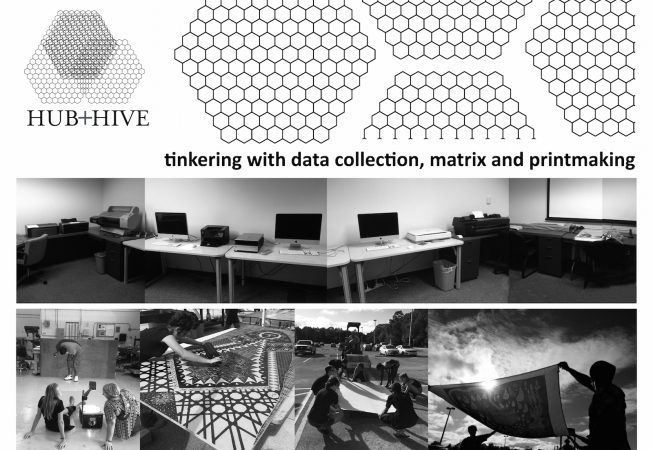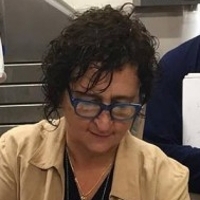Hub + Hive: tinkering with data collection, matrix and printmaking
 Students from Art & Design will laser-cut, engrave, and tinker with computer-generated and photographic data onto different materials and develop an archive of printing plates, screens and blocks; Such matrixes will be printed using traditional and contemporary printing processes. Students will explore and document printing results and both matrixes and prints will compose a library of resource material available for future investigations.
Students from Art & Design will laser-cut, engrave, and tinker with computer-generated and photographic data onto different materials and develop an archive of printing plates, screens and blocks; Such matrixes will be printed using traditional and contemporary printing processes. Students will explore and document printing results and both matrixes and prints will compose a library of resource material available for future investigations.
Research data from other departments will be solicited via e-mail and social media. Students will tinker with the information, phenomena, tools and materials and create multiples that will be the mediators between scientific and creative research.
Using our newly developed Digital Printmaking Research Lab students will create positives and transparencies to transfer images on screens, blocks or for photolithography and photo etching plates; Along the exploration of matrixes for lithography, intaglio, screen-printing and relief we will examine inking techniques to print such matrixes and investigate numerous substrates for the printed image.
The complete research process will be published in XYZ, a digital and hard copy handbook. XYZ will present comprehensive introduction to transferring hand autographic markings, computer-generated and photographic data to traditional matrixes. In the near future we hope to add a laser engraver to our lab and include laser-cut and engraved images onto different materials and explore contemporary post digital matrix making methods.
This proposal closely aligns with the new Digital Humanities Initiative as students and collaborating faculty will tinker with various exploratory printmaking processes and hybrid technologies.
Printmaking is a developing culture that embraces new and old technologies and has always been mediated by the dimensional topography of its matrixes and the surface of printed substrates. XYZ will be a significant tool both technically and conceptually that will explore image making from the pencil to the pixel; from vector based software to new spatial and dimensional frontiers.
 Faculty Project Leader
Faculty Project Leader
Sheila Goloborotko
